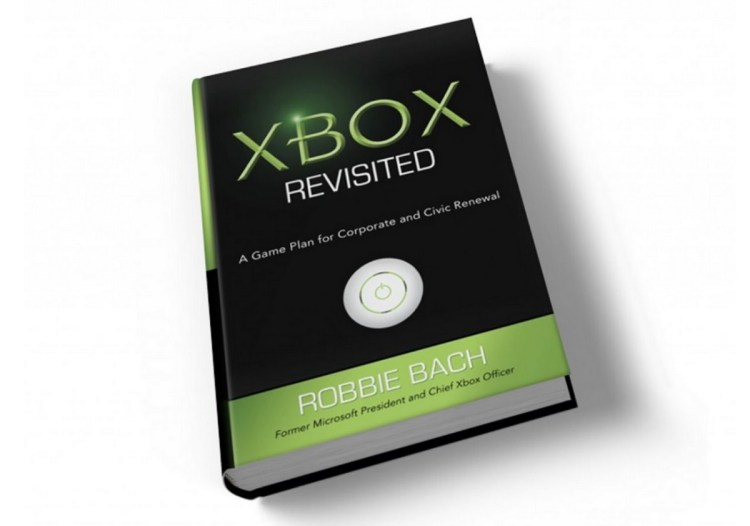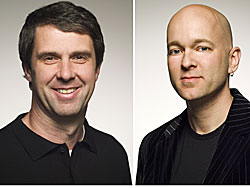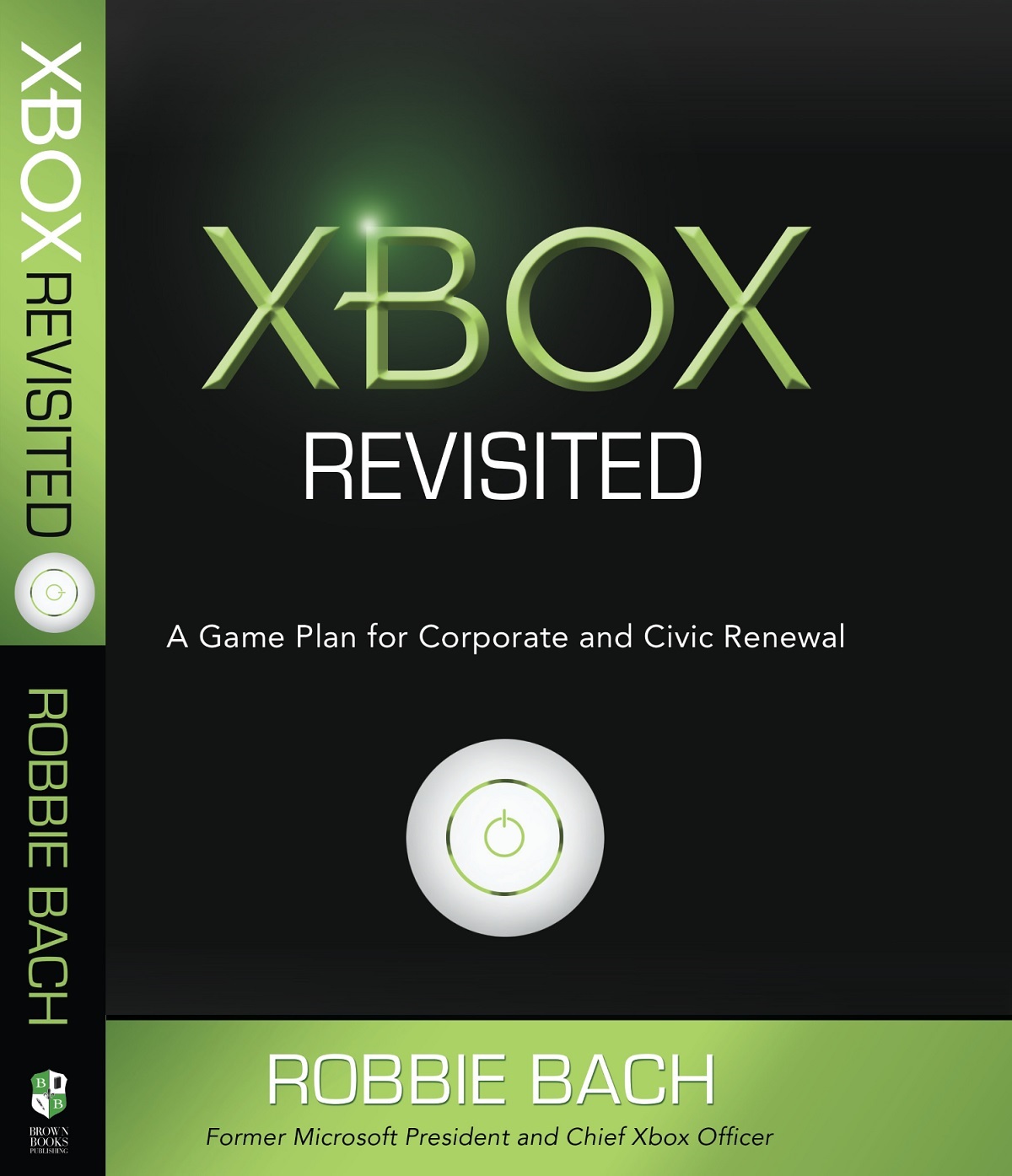GamesBeat: You could have talked about just your achievements and filled a book that way.
Bach: You know me well. I’m a committed person on these types of things. The book isn’t there to make money or spread my name. It’s there to provide a tool for people to have social impact. If you want to convince people that the tool works, they have to understand its power. The best way for me to communicate that power was to make sure they understood where I was personally and where the team was collectively. That’s where that whole section comes in.
GamesBeat: You chose to talk about the red ring of death as well, and in a more emotional way than a technical or business way.
Bach: The red ring — I felt like that needed to be part of the story. The book would have been incomplete, and it would have made Xbox 360 sound like it was a perfect console, when in fact it wasn’t. As a point of clarity and transparency with the audience, I needed to talk about it.
I also deeply believe that that episode showed the power of teamwork. It’s a great story to evoke both the types of challenges you face and what a team can do when it comes together to do the right thing.
GamesBeat: In the end, do you feel like it was a real serious hardware problem? Or do you feel like it was more of a PR problem?
Bach: No, no, it was a hardware problem. There was a real technical problem. There’s no question about that. We reworked millions of consoles. It’s the worst kind of technical problem, where you can’t say, “Oh, it’s this particular part.” It was a systemic, consolidated design challenge that required redesign work. Those are hard to isolate and hard to fix. It took the team some time to figure out the interactions and figure out what to do about it.
GamesBeat: You also talked a bit about the competition with Apple. It looks like, while you’re winning on the Xbox 360 side, you were in the process of getting beat by Apple and the iPhone.
Bach: In the time frame of the book it would have been the iPod, and then toward the end of the 360 development cycle — probably two years into 360 — the iPhone comes out. Let’s just say iOS and call it good. Apple did some great work there.
GamesBeat: How do you look back on that competition, if you were to summarize it? Zune is part of that.
Bach: It points out a couple of things. Timing matters. Apple hit the technology sweet spot perfectly. Much of the technology in an iPod, and later iPhone, was not new technology, but it was technology that got to the right price point at the right time. For a variety of reasons, we were badly timed. We were too early with touch using a stylus and too late with touch using a finger.
The second thing we knew from Xbox, because we did it much better on Xbox. User experience matters. That’s not a technical statement. That’s, “Open the box. Am I wowed? Does it work easily? Does it set up well? Do I get a special moment when I start to use it? Does that moment stay with me as I use it more and more?” We had some elements of that on Xbox, and particularly with Xbox Live. Apple delivered that in a number of places. In the present day, as a user I’d say Surface has some of those moments. I look at the work I do with Sonos. They have incredibly nice moments.
The power of that design and user experience moment is important in this process. Apple got on a good run. That’s hard to compete with.
GamesBeat: You and J Allard left around the same time. Did some of this Apple competition play into deciding whether to do that, to make this big change?
Bach: No. I can’t speak for J. Certainly in my case this was all driven by a point in time in my life.
GamesBeat: When Ed Fries left Microsoft, he said he felt like he got a second chance at life. Starting over, doing something new with his life in a new career. I imagine you had a similar opportunity.
Bach: Exactly. We should all be blessed with the opportunity to be as fortunate as I’ve been, and as I suspect Ed feels he has been. You get to work in a great place, have a great career, and then get to start over and take another crack at it. You can do something completely different that stretches a different part of your brain. I’m thankful that I have that opportunity.
GamesBeat: Did you toy with any other ideas besides the direction you’ve headed down with the book?
Bach: In the first year I did a bit of consulting. That was fine, but ultimately not terribly rewarding. I continue to do some board work. I find that interesting and challenging. Mostly in the non-profit space, but a little bit in the for-profit space. The other thing, which I don’t talk about at all in the book because it happened after I wrote it — a business partner of mine, a guy named Pete Higgins, an ex-Microsoft guy, we bought a little gluten-free fresh pasta and flour company. We’re executive chairmen there. I have my hands in a small business that’s fun and interesting as well. So I have a few different things going on.
GamesBeat: When did the interest in politics start to spur you?
Bach: I think of it as civics more than politics. I know it’s only a slightly different term. The reason I say “civics” is because I really am focused on not just government agencies and organizations and leaders, but also on community-based organizations and non-profit organizations. The people who have the ability to influence the fabric of our community life.
I’ve loved civics since I was in high school. I talk in the book briefly about one day wanting to be a U.S. Senator. That was when I was in high school. I will not return to that dream.
GamesBeat: Why not make a run for office?
Bach: People ask me that. Is this the prototypical book to prepare for a run for office? No. When you decide to do that, that’s a certain course, and I respect the people who take that course, but it takes a big commitment. It puts you in a place where your impact has to be shaped in a certain way. I want my impact to be as broad as possible. I want to provide tools and approaches and techniques for lots of different people to become what I call civic engineers.
If you run for office, now you have a whole different set of priorities and things to pay attention to that don’t give you the ability to have that kind of impact. It’s still valuable impact, but it’s different. One of my former co-workers, Susan DelBene, is my congresswoman now. I have a huge amount of respect for the commitment she’s made. Congress is a tough place. You’re running for re-election every year. It’s a great way to serve, but it’s just not the way I want to serve.




